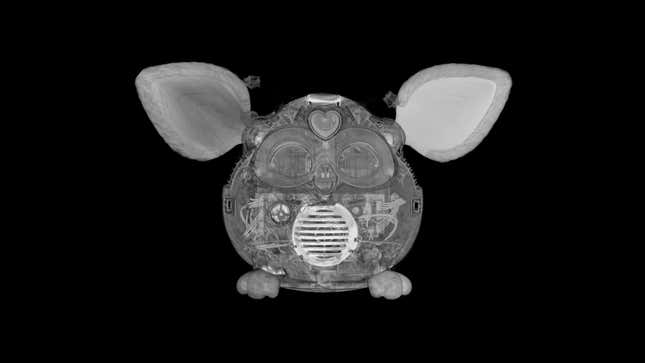ARTICLE AD

Technology has become so ingrained into our lives that we often don’t stop to think about the electronics—small, delicate, and powerful—that have to work in perfect harmony to make our favorite gadget work. In my case, I would have never imagined that Apple’s Lightning charger, a bane of my existence, would have as many tiny wires as a tree has roots.
The engineers over at Lumafield are all about inspecting the electronics that make our world hum. To do so, they run all sorts of devices—as well as the occasional bag of Cheetos and sometimes bugs—through CT scanners.
As the folks at Lumafield point out, you can run gadgets through CT scanners to detect internal defects and imperfections in electronics, such as misaligned components and faulty shoulder joints, without taking them apart and potentially destroying them.
Besides helping the people who make and repair these gadgets find potential flaws, a CT scan can also give the public a look at how much goes into making these seemingly “simple” devices work. Take the 2023 Furby update, for instance, whose ears appear to move randomly.
“The CT scans show a pair of rack-and-pinion assemblies responsible for the ear movements. These assemblies are connected to linear actuators and uniquely shaped cams with wobbly paths. As these cams rotate, they transform the motor’s constant rotation into seemingly random back-and-forth movements,” Lumafield wrote in its Furby analysis.
Click through to check out what some other popular gadgets look like under the CT scanner. You may be surprised at how complex they are under the hood.

 9 months ago
99
9 months ago
99 

